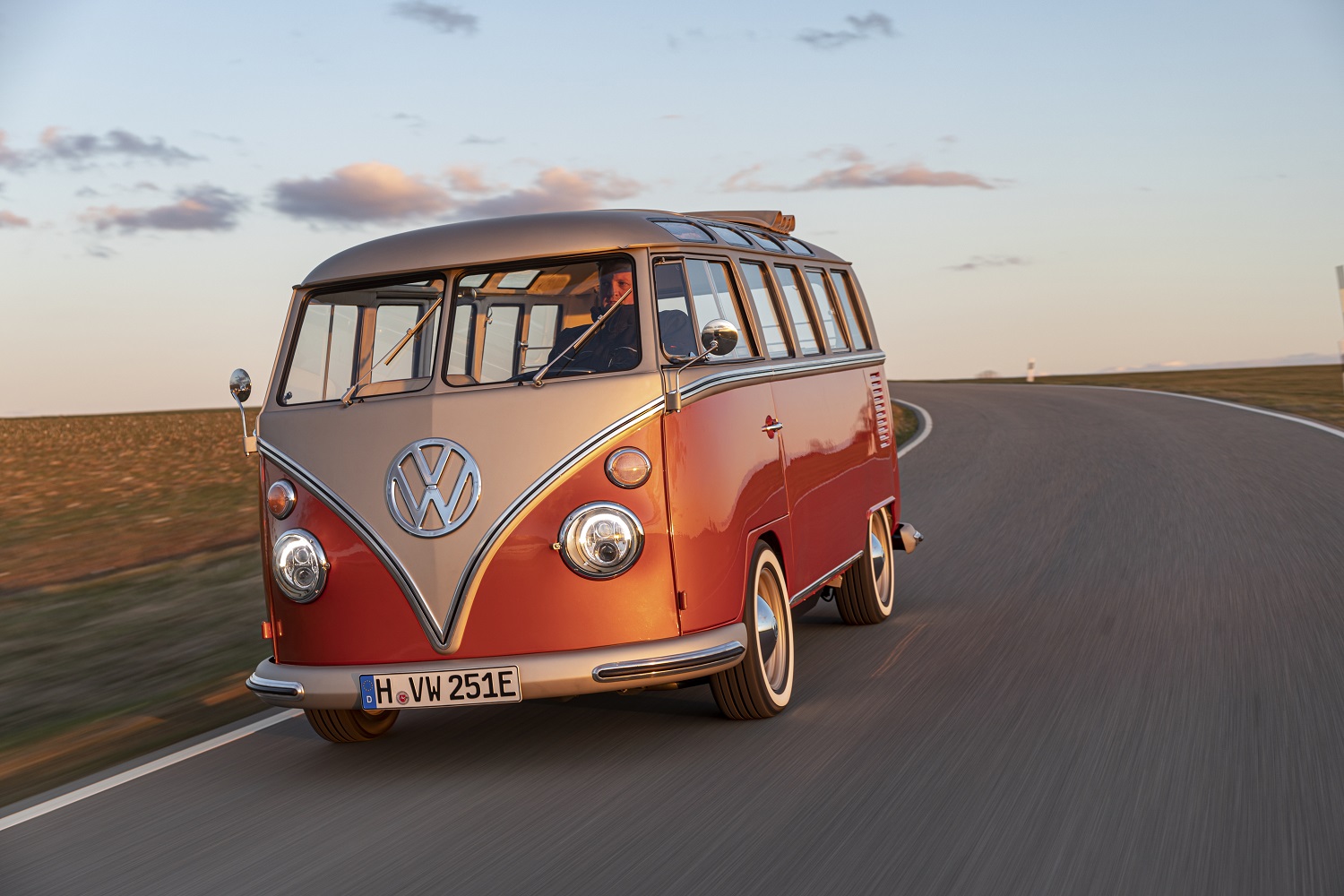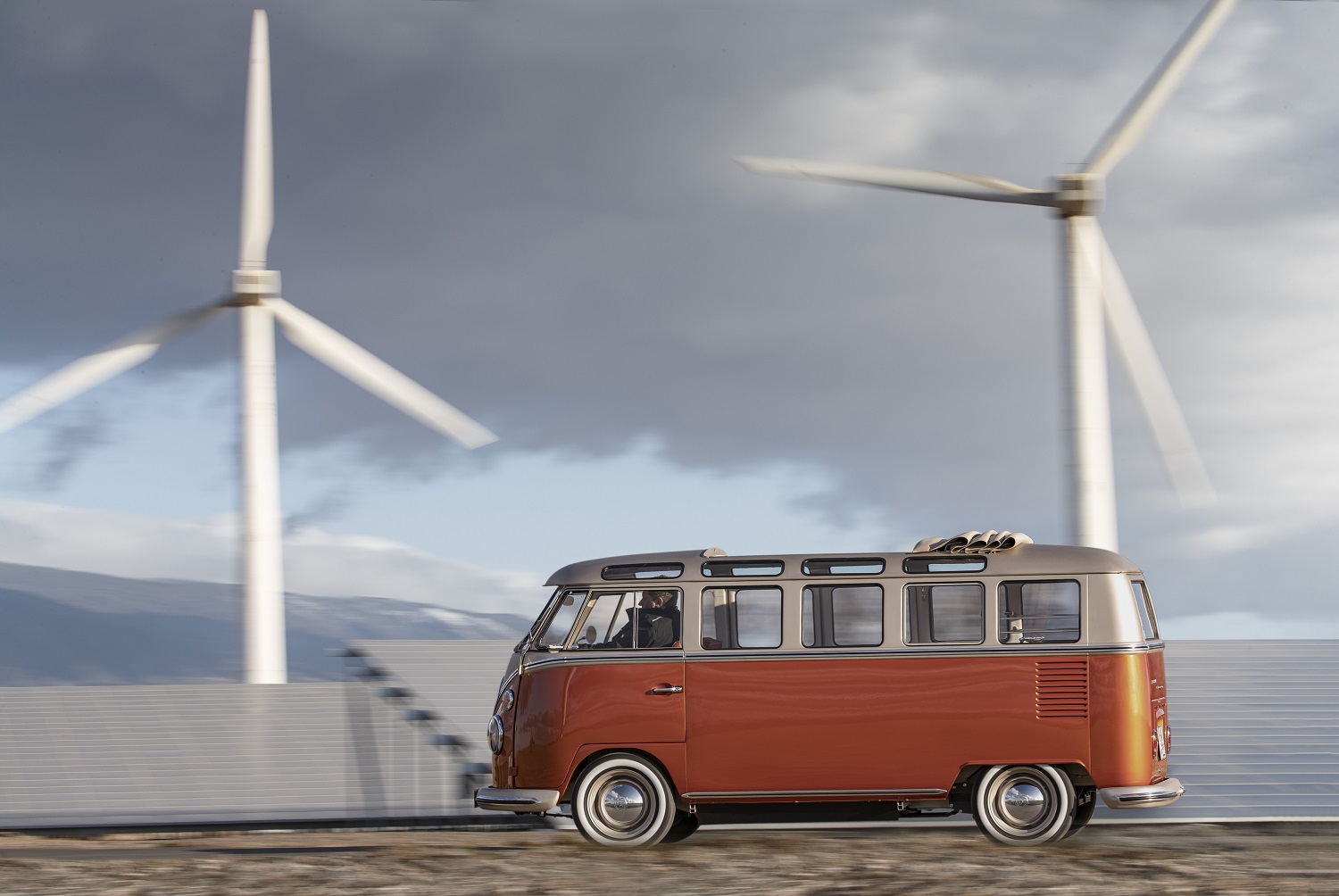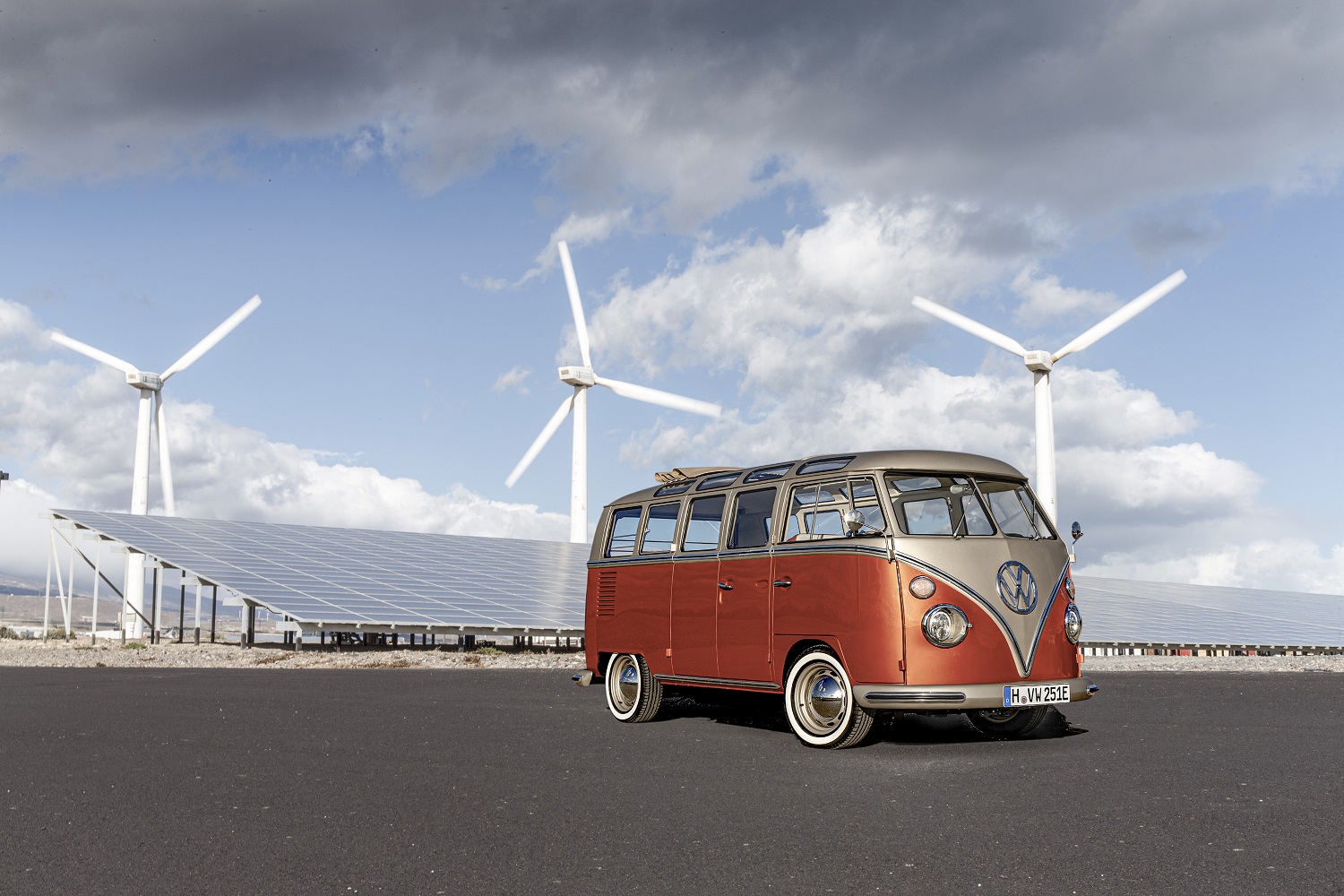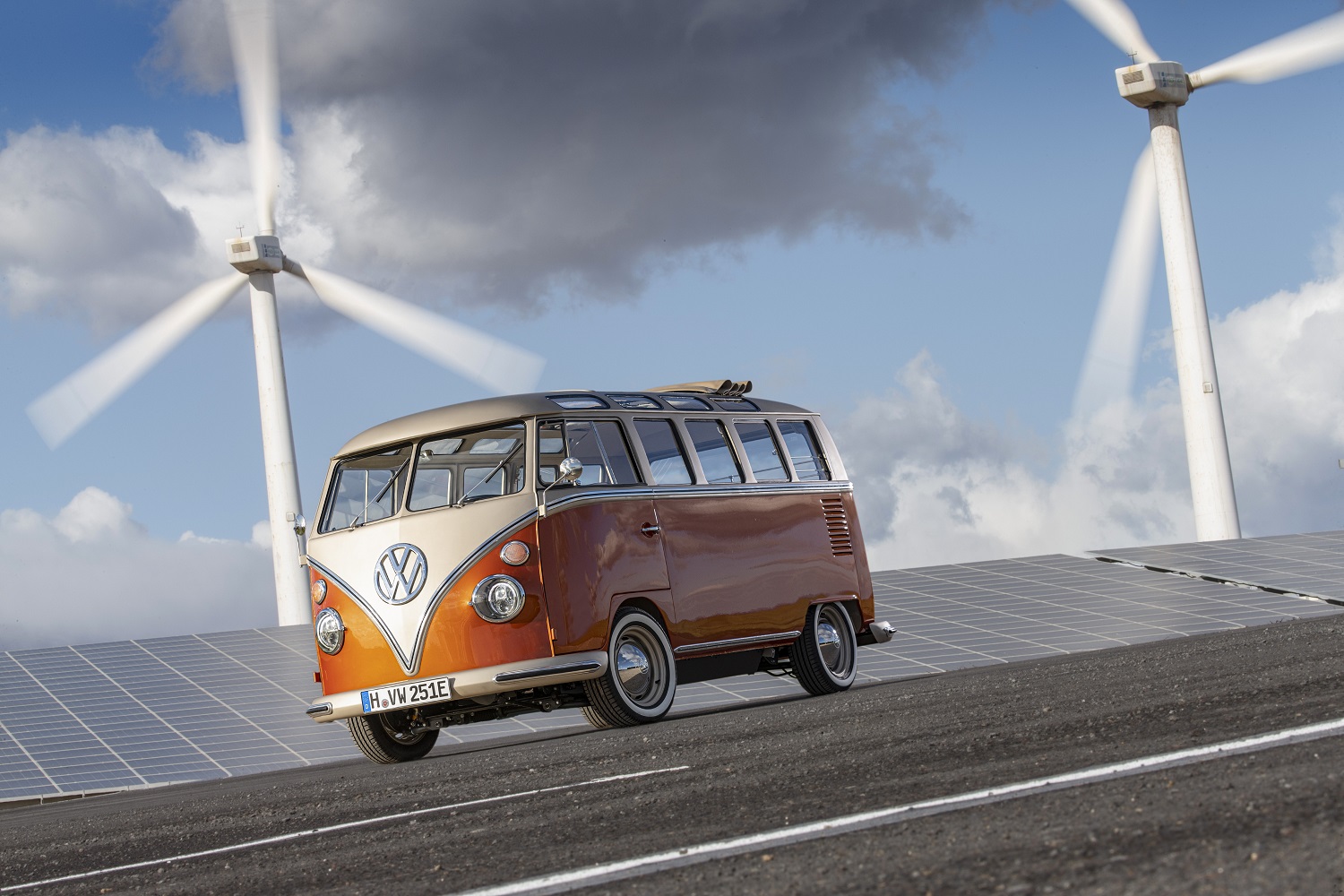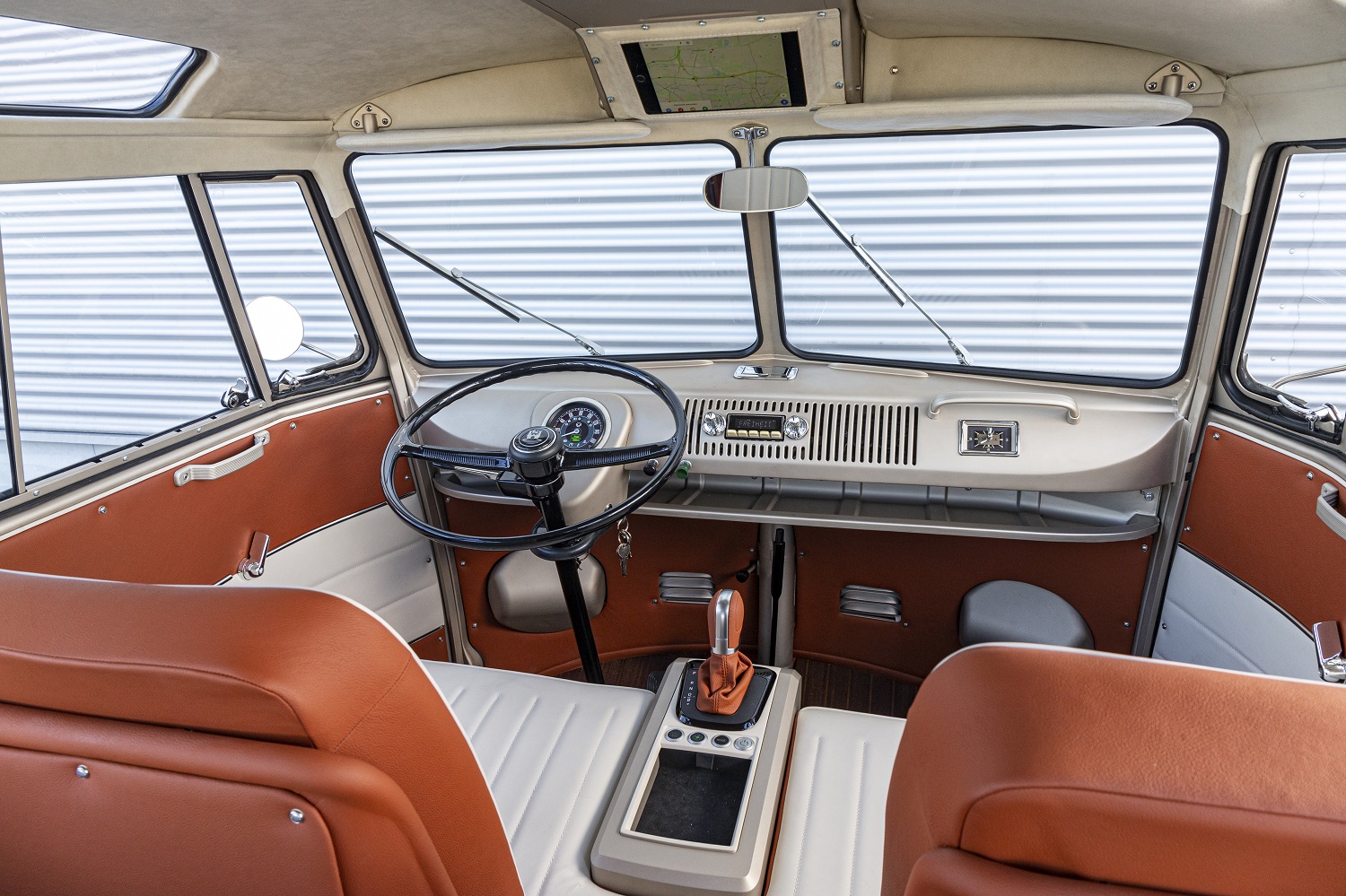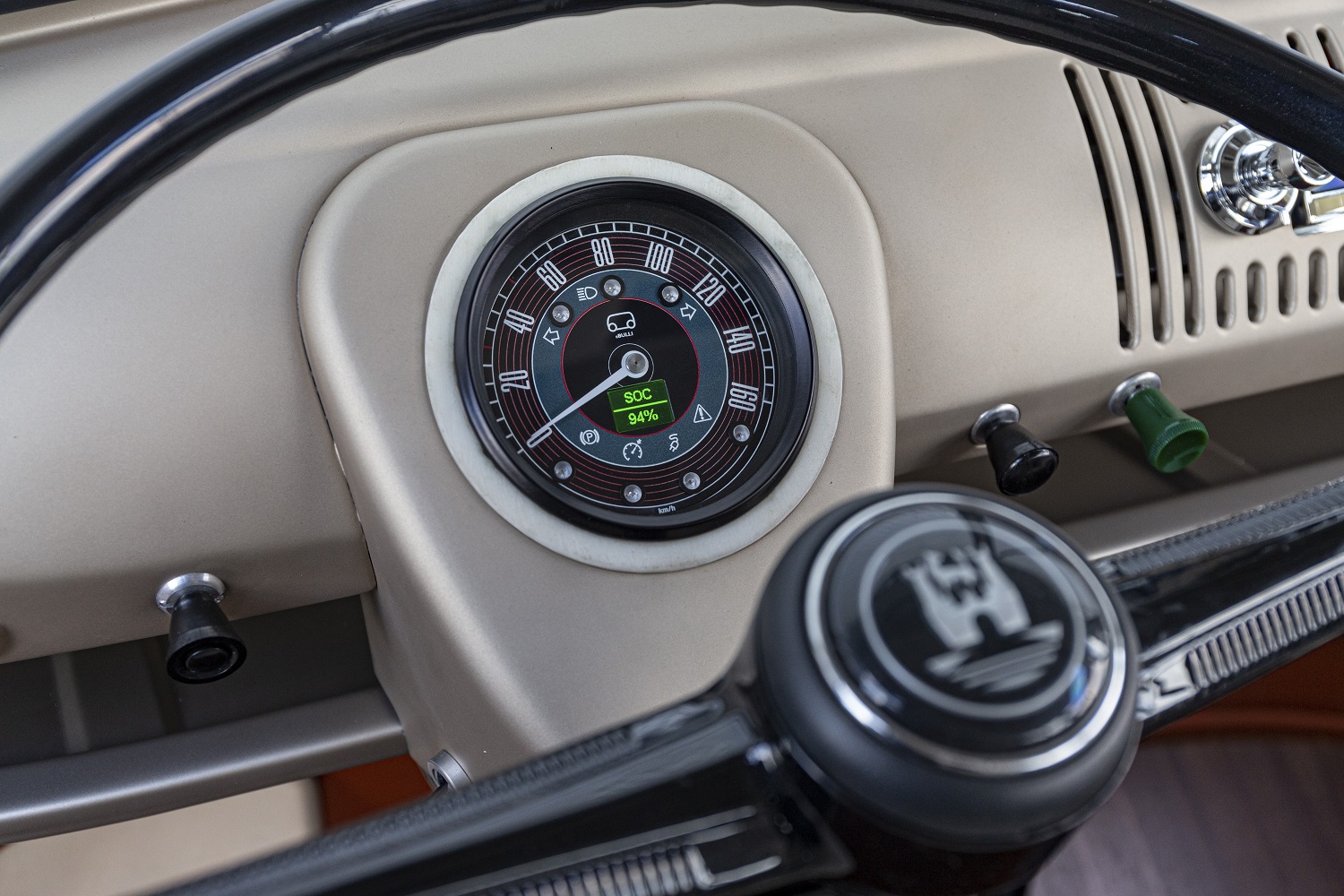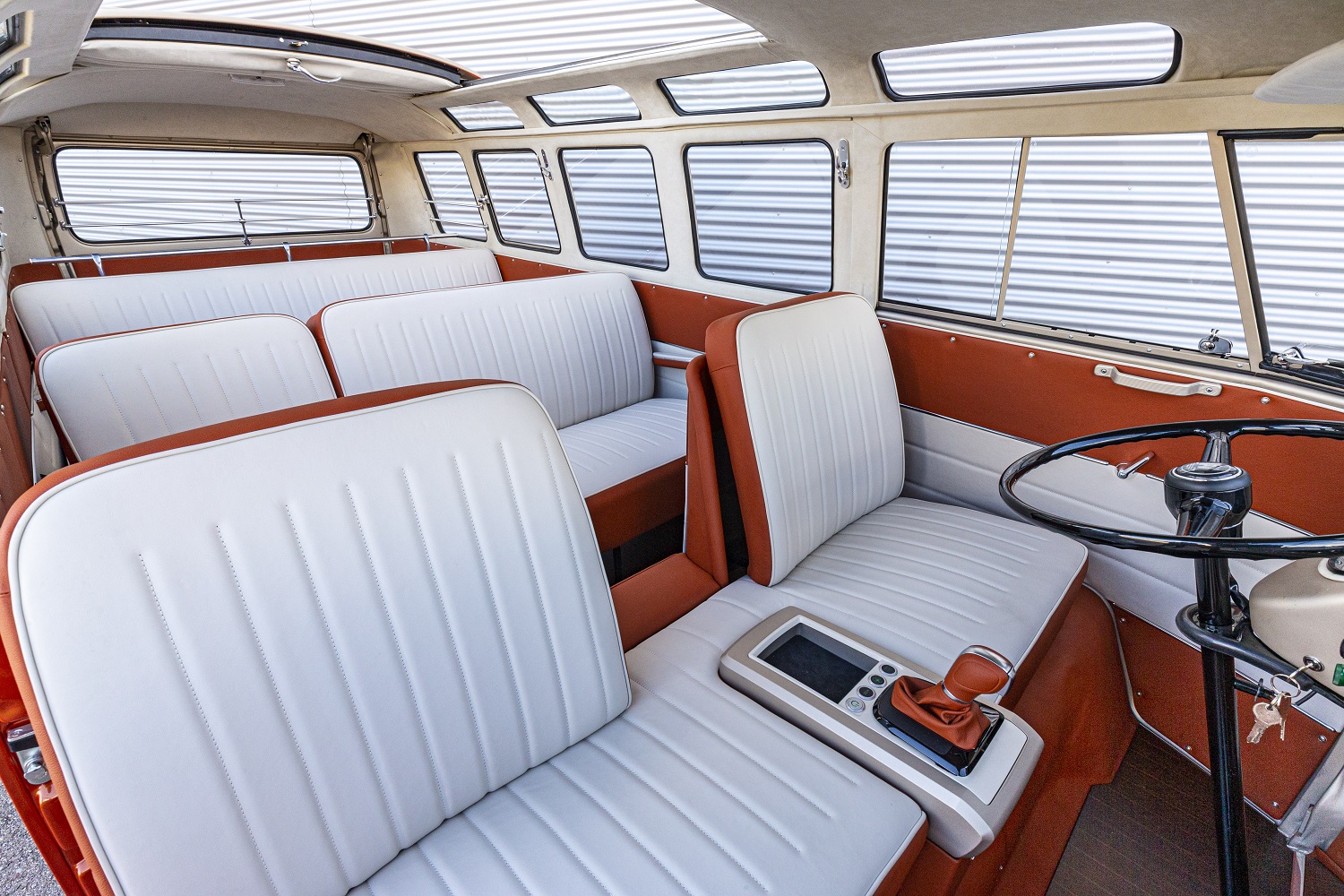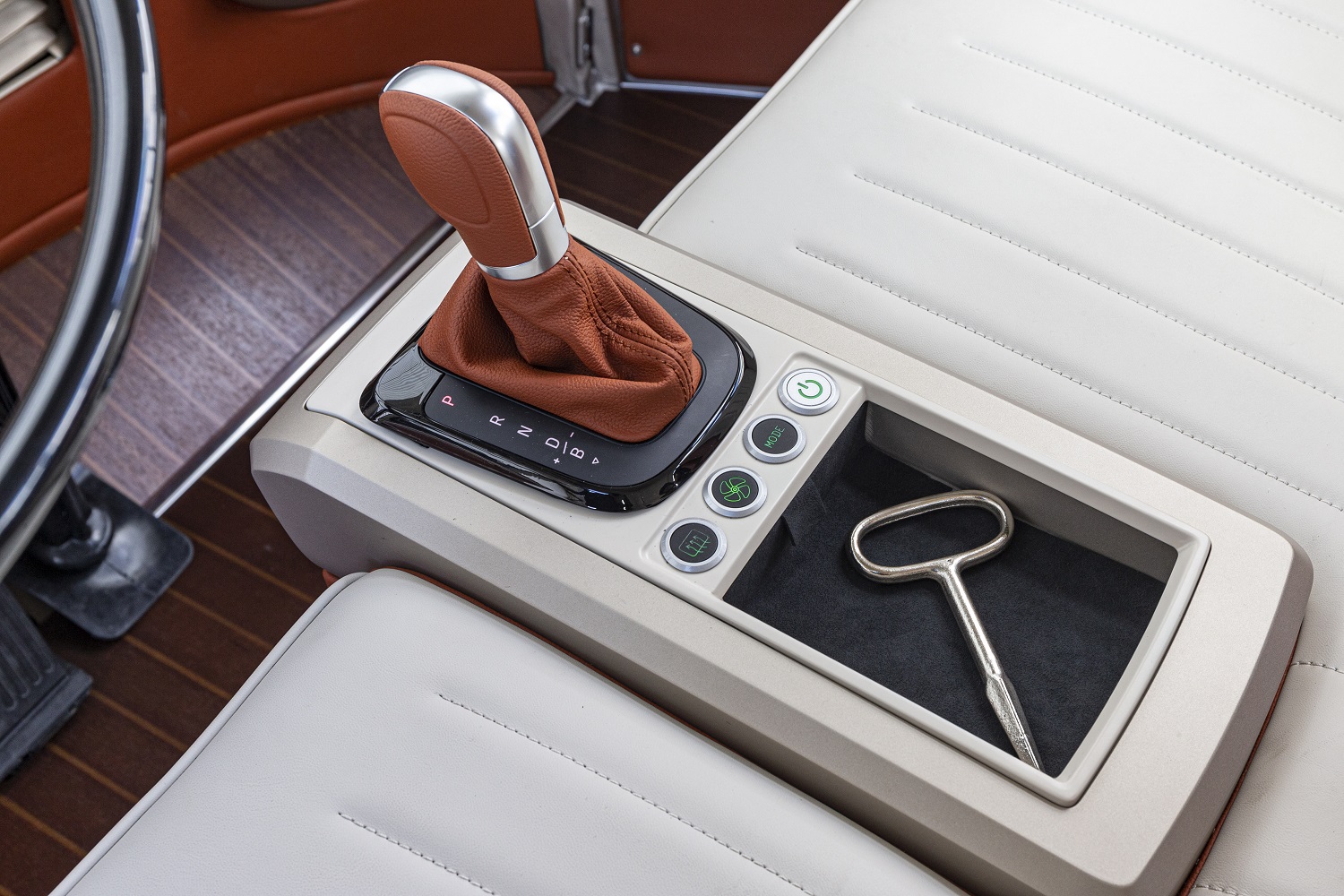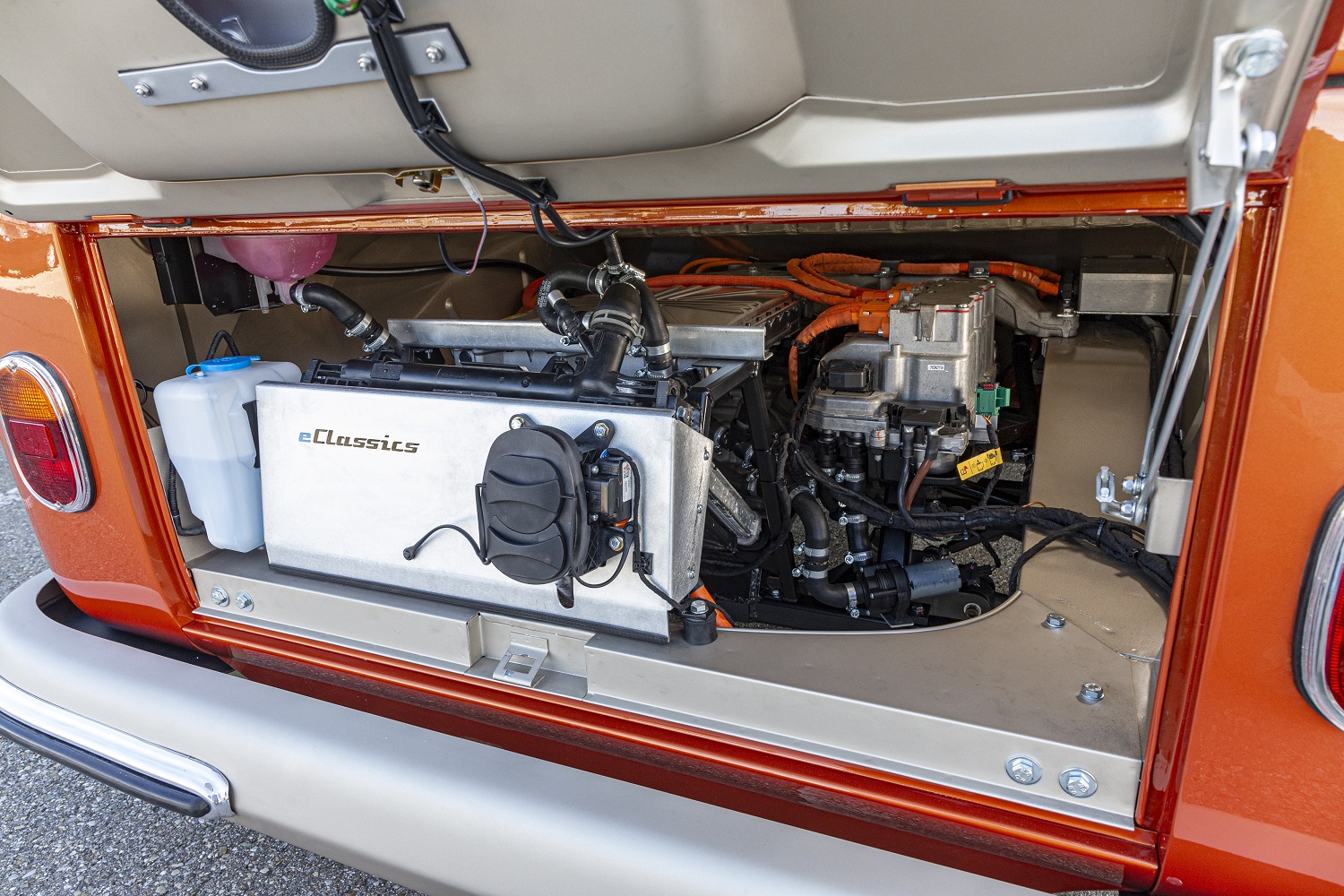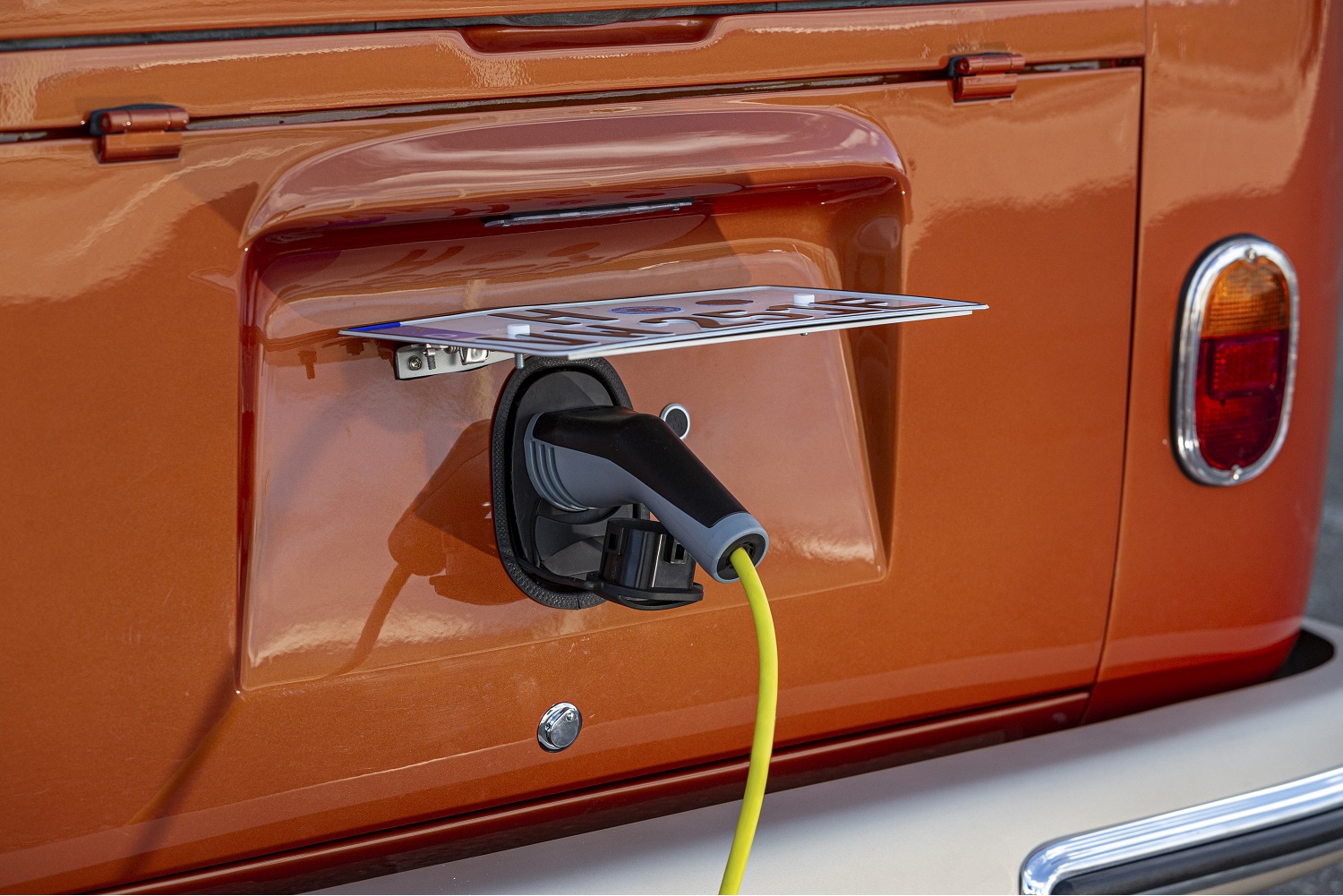The original Volkswagen Bus shares little more than a silhouette and a few styling cues with the ID Buzz concept introduced in 2017 and currently making its way to production. The latter is quick, silent, and emissions-free, while the former is relatively slow and loud in its own charming way. Volkswagen is bridging the gap between the two people-movers by stuffing cutting-edge electric technology in a 1960s split-window Bus that looks almost stock.
The company calls its electrified classic E-Bulli, but it’s not out to bully anyone; Bulli was the van’s unofficial German name. Made in 1966, and first registered in California, it benefited from a complete restoration after it returned to its home country for the first time in over 50 years. The mechanics working on it left out the air-cooled, 44-horsepower flat-four, however. Instead, they dug around Volkswagen’s parts bin and pulled out an electric motor that makes 83 horsepower. It fits neatly in the space normally occupied by the flat-four, and it zaps the rear wheels into motion.
The 45-kilowatt-hour lithium-ion battery pack stores enough electricity for about 124 miles of range, which is less than the Bus offered when it was new. As a trade-off, its top speed increases to an electronically limited 80 mph, which sounds 98% fun and 2% scary. Remember: in a Bus, you’re sitting directly over the front wheels.
Engineers redesigned the entire suspension, fitted wider tires, and installed a modern steering system. Step inside and you’ll find a new-look speedometer with a digital readout, Bluetooth connectivity, and a gear selector integrated into a center console positioned between the front seats. The giant, almost horizontal steering wheel remains.
Volkswagen presented the E-Bulli as a concept, but it stressed it’s not merely a one-off designed to turn heads. Its partner, eClassics, is ready to convert a gasoline-powered Bus to electric power, or sell a turn-key model to motorists who don’t want to go through the trouble of finding a donor vehicle. Pricing starts at 64,900 euros, a sum that represents $70,000. It’s also able to fit its battery-powered technology in a later Bus (the bay-window model, for aficionados fluent in Volkswagen-speak) or in the boxier Vanagon sold during the 1980s.
Converting a classic car to run on batteries is becoming increasingly popular, but the idea of making a Bus powered by electricity is far from new. In 1972, when gas was cheap and emissions regulations were loose at best, Volkswagen experimented with a zero-emissions Bus whose battery pack delivered about 53 miles of range. It took ages to charge, the technology was still in its infancy, so it was designed to slide out and be replaced in a matter of minutes.
Editors' Recommendations
- Mercedes’ electric eSprinter isn’t just greener, it’s better
- Bold style alone can’t muscle Chevy’s new Blazer EV to the head of its class
- Volkswagen ID.4 vs Tesla Model Y
- Lamborghini teases its first all-electric supercar ahead of Friday’s big reveal
- Volkswagen is launching its own self-driving car testing program in the U.S.

